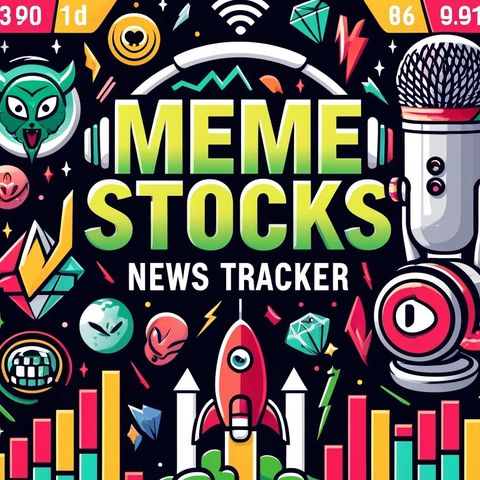Meme Stocks Disrupt Financial Landscape: Robinhood, Truth Social, and the Volatile Impact of Social Media on Investing

Scarica e ascolta ovunque
Scarica i tuoi episodi preferiti e goditi l'ascolto, ovunque tu sia! Iscriviti o accedi ora per ascoltare offline.
Meme Stocks Disrupt Financial Landscape: Robinhood, Truth Social, and the Volatile Impact of Social Media on Investing
Questa è una trascrizione generata automaticamente. Si prega di notare che non è garantita la completa accuratezza.
Descrizione
The phenomenon of "meme stocks" has prominently featured in recent financial news, with companies like GameStop and tech platforms such as Robinhood and Truth Social drawing significant attention. Meme stocks...
mostra di piùRobinhood, a trading app, became a household name during the GameStop trading frenzy in the U.S. The app was primarily utilized by a younger, more tech-savvy demographic that capitalized on collective trading strategies to influence the stock market. Now, Robinhood is planning to expand its territory by introducing crypto trading in the UK. This move aims to establish the platform as a dominant financial entity in the region, suggesting a broader strategy to capture international markets with its straightforward and mobile-first trading platform.
Meanwhile, former U.S. President Donald Trump’s social media venture, Truth Social, has also been labeled a meme stock. This categorization indicates it's being driven by speculative trading among day traders. The platform is compared to other high-activity tech investments like Tesla and various semiconductor manufacturers, highlighting the speculative nature and the high volatility associated with these stocks.
As meme stocks continue to fascinate and engage a broad array of traders, the broader stock market is also influenced by significant political and economic events. For instance, the anticipated 2024 U.S. elections raised questions about potential impacts on the Canadian and U.S. markets. Historical data suggests that election cycles can lead to heightened volatility and varying market performance, influenced by policy changes and investor sentiment.
Investor interest in meme stocks like GameStop continues to be a topic of discussion. Initially ignored by many traditional investors, the surge driven by social media campaigns, notably Roaring Kitty’s endorsement, has led many to reassess its value. While GameStop’s fundamental business model faces challenges in the digital era, its stock maintains significant speculative interest.
As for Robinhood, despite its earlier success and role in popularizing stock trading among new investors, the platform has seen fluctuations in transaction revenue and user engagement since its peak in 2021. This raises important questions about the long-term sustainability of its business model, especially as it attempts a comeback with new trading options and global expansion plans.
These developments encapsulate a broader trend where technology and social media continue to impact traditional financial systems and investor behaviors, shaping the future of stock trading and market dynamics.
Informazioni
| Autore | QP-4 |
| Organizzazione | William Corbin |
| Sito | - |
| Tag |
Copyright 2024 - Spreaker Inc. an iHeartMedia Company
